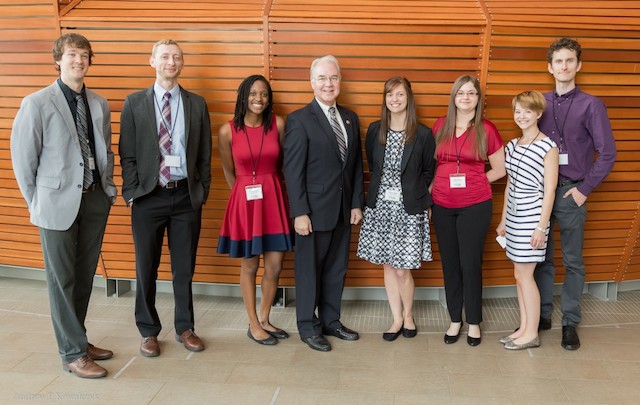Emory scientists and supporters of science were out in substantial numbers Saturday at the March for Science Atlanta in Candler Park.
March organizers, many of whom came from the Emory research community, say they want to continue their advocacy momentum and community-building after the event’s success. Check out the web site “Science Marches On” for post-march activities. The organizers have estimated that somewhere around 8,000 people participated in Saturday’s march, based on aerial drone footage and Atlanta Police estimates.

Marchers Jarred Whitlock, Bethany Whitlock, Erica Werner, Victor Faundez, and Chelsea Lee (left to right)
Several issues propelled the Marches for Science around the world: proposed research funding reductions, skepticism on specific issues such as climate change or vaccines, and attention on diversity in science. Some Emory folks such as autism geneticist/communicator Chris Gunter and oncology nursing leader Deborah Bruner were in Washington DC for the March for Science there.
Here in Atlanta, marchers had a variety of colorful costumes and signs, with messages ranging from the blunt to the subtle. The crowds enjoyed sunny weather and pre-march entertainment from the punk rock band Leucine Zipper and the Zinc Fingers.
Former Emory neuroscience postdoc Alison Bernstein, who blogs as “Mommy PhD” and is now an assistant professor at Michigan State, was one of the first speakers, describing how some vaccine skeptics have embraced unproven and possibly dangerous treatments for conditions such as eczema.
Emory virologist Anice Lowen was quoted in this WABE story.





